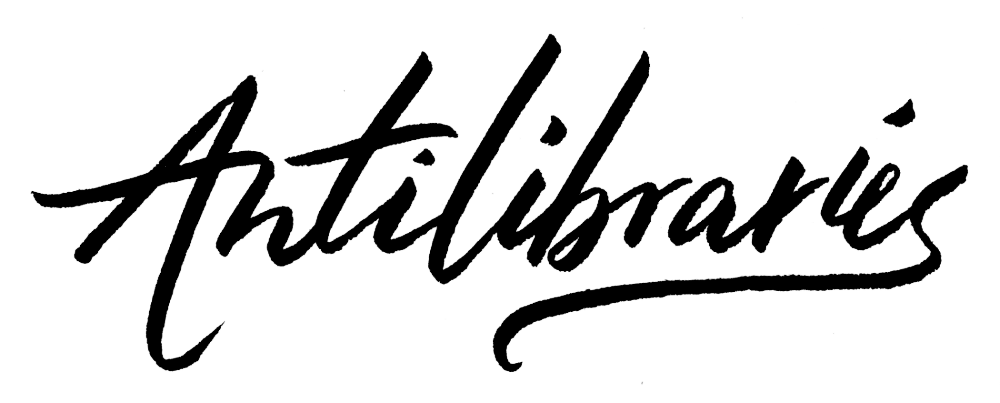In Summary…
Antilibraries is a project exploring books unread, imagined futures, literary longing.
The books here are ones that I really want to read but haven’t yet. For each, I write a bit about why it fascinates me and what I hope to learn when (if!) I someday read it.
This results in a collection of “pre-reviews” of all kinds of incredible books.
I’m combing my extensive book lists for the most fascinating books I’ve yet to read, across genres and topics, and sharing them with you so you can augment your own antilibrary.
Antilibraries: Exploring Books Unread (The Backstory)
I’ve long been obsessed with books. And recently, I’ve been fascinated by the idea of the antilibrary — the collection of books that you’re peripherally aware of, but haven’t read.
In Black Swan, Nassim Nicholas Taleb describes Umberto Eco’s massive library of 30,000+ volumes, many of them unread. These unread books, Eco’s antilibrary, embody the potential energy of knowledge, of books and reading and learning. Their value lies not in what they’ve already taught you, but where they may lead.
I love this idea. It’s made me consider all the things I’d like to read and learn more about, and I find it helps make tangible the process of learning, always adding more to my shelves as I explore the adjacent possibilities of my interests.
You probably already have an antilibrary.
Whether it’s books piling up in corners of your home, or lists of “someday reads”, if you’re anything like me you always have more books in your peripheral vision than you have in front of you or under your belt.
This collection of books you know of, but have not yet read — your antilibrary — is tremendously powerful. It’s a window, a record, a goalpost. It will take you in interesting directions, extend the tendrils of your learning in all sorts of unpredictable ways. A well-curated antilibrary can:
- Help you decide what to read next
- Expand your awareness of the myriad areas of human knowledge and creativity
- Give you the ability to “pre-read” books and better evaluate what’s worth your time before diving in
I think everyone can benefit from being more aware not only of the books we read, but those we don’t.
Codex Libri: An Antilibraries Compendium
In 2017, I completed a printed volume of 60+ “pre-reviews” of great books from my antilibrary. This was successfully funded via Kickstarter, my first crowdfunded project — lots of work but also a lot of fun!
This collection reflects the current state of my antilibrary, with an eye toward what books I think are at least worth knowing about for all sorts of people, whether because they’re highly regarded, pertain to fields of growing relevance, underappreciated artistic merit, or just plain super cool.
It’s not a “best books ever” list — it’s too personal for that and it’s of course biased towards my interests (experimental literature! science and technology! systems thinking! ecology!) — but it’s as diverse and eclectic as I could make it.
I’ll soon make the accompanying essays available online here. I also still have a handful of the books left; let me know if you’re interested in a physical copy.
Behind the Scenes: The Antilibraries Process
I currently have a special Antilibraries list with hundreds of titles. It’s mainly on Amazon but I’m gradually working on adding all the books to this site, and writing some thoughts on them as I go.
How do I get the gist of a book without reading it?For each book, I’ll usually start by reading the few paragraph overview blurb. If that piques my interest I’ll dive in and read the reviews on Amazon / Goodreads, flip through the table of contents if available, and Google the book to see what else I find about it.
I’ll takes notes as I go, which takes around 10–20 minutes per book. Then, based on these impressions (and anything else I’ve heard about the book, etc.) I’ll write up a few paragraphs summarizing my impressions and why the book seems worth knowing about.
Anything else you’d like to know? Let me know!
